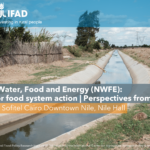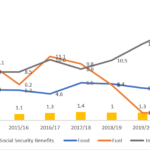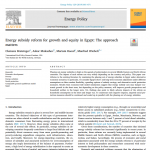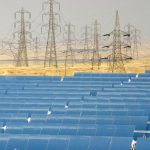Water, energy and food security are important human development goals that are closely inter-connected. Food systems rely heavily on the availability of energy and high-quality water. This connection spans nearly every stage of production and agricultural value chains, including aspects such as labor and mechanization, agro-chemicals, cooling, and transportation.
Navigating Energy Subsidy Reforms in Times of Tight Budgets and High Inflation: Balancing Growth, Equity and Social Protection in Egypt
Energy costs are on the rise in Egypt and shortages of electricity have resulted in scheduled power outages since August 2023. Understanding the trade-offs inherent in the energy subsidy system can help policymakers to chart the best course in a difficult economic period.
Publication: Energy subsidy reform for growth and equity in Egypt: The approach matters
Clemens Breisinger, Askar Mukashov, Mariam Raouf, and Manfred Wiebelt
Phasing out energy subsidies is high on the agenda of policymakers in several Middle Eastern and North African countries. The impact of such reform can vary widely depending on the country and policy. This paper contributes to the existing literature by examining the phasing out of energy subsidies in Egypt under alternative economic scenarios.
Water-Energy-Food Nexus Assessment Study for Sudan
On February 12, 2019 the Arab Organization for Agricultural Development (AOAD) hosted the Validation Workshop for discussing the findings of the Water-Energy-Food Nexus Assessment Study for Sudan in Khartoum. The study formed part of the Nexus Regional Dialogue (NRD) in the MENA region, co-funded by the EU and BMZ “Nexus Dialogues Programme” and aims to align national strategies, policies and implementation plans with a national Nexus framework as an operational guidance to Sudan.
Making Egypt’s power sector more diverse and sustainable
Alam Hossain Mondal and Claudia Ringler
In Egypt, like everywhere, growing energy demand is increasingly at odds with the urgent need to control carbon emissions.
Nationally, energy use is rising approximately 6.5 percent a year. To keep up, the government has promoted growth in production of natural gas and other conventional energy sources. As gas production has risen, the share of renewable energy sources in power generation has shrunk. This strategy raises concerns about the country’s finite gas reserves, and also throws Egypt off track in meeting the goals laid out in its sustainable development plan...





